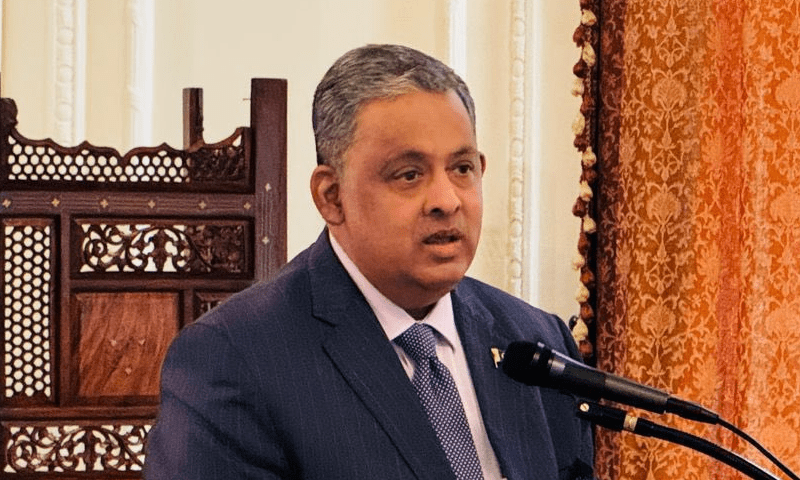Pakistan Envoy Urges Global Intervention to Resolve Kashmir Dispute
Pakistan’s Ambassador to the United States, Rizwan Saeed Sheikh, has reiterated Islamabad’s call for global mediation to resolve the Kashmir dispute, which he labelled as the “core issue” behind the ongoing strain in relations with India. Speaking to Fox News Digital, Sheikh emphasized the urgency of addressing Kashmir amid heightened tensions following the April 22 Pahalgam attack, which left 26 people dead.
India has hinted at cross-border involvement without presenting concrete evidence, a claim Pakistan firmly denies. In response to India’s accusations, Sheikh stated that Pakistan has called for a neutral and transparent investigation, which has yet to be acknowledged by New Delhi.
Tensions have surged in the region since the attack, with both nations reinforcing their military readiness. Indian leadership has granted its military “operational freedom,” prompting Pakistan’s military to warn of a “resolute” response to any incursion. Diplomatic efforts continue behind the scenes in an attempt to avert conflict.
Pakistan Calls for Peace with Dignity, Not Weakness
Ambassador Sheikh underscored Pakistan’s commitment to regional peace but cautioned that this should not be perceived as a weakness. “We want peace with dignity,” he stressed, while warning that “any misadventure or miscalculation can lead to a nuclear interface” — a disastrous possibility in one of the world’s most densely populated regions.
He appealed directly to the international community, especially US President Donald Trump, noting that addressing the Kashmir issue could become part of Trump’s legacy as a peacemaker. Highlighting that past diplomatic efforts have often faded before conflicts were fully de-escalated, Sheikh urged for a comprehensive and lasting resolution, not a temporary fix.
He criticized India’s premature response to the Pahalgam incident and its broader policies in Kashmir, including alleged demographic changes. He also challenged New Delhi’s suspension of the Indus Waters Treaty (IWT), calling it “grossly illegal” and a breach of an agreement that has withstood multiple wars.
Legal and Diplomatic Implications of Escalation
Pakistan’s government has begun consultations with its legal and foreign affairs ministries to formulate a final response to India’s actions concerning the Indus Waters Treaty. Officials, including Law Minister Azam Nazeer Tarar and Barrister Aqeel Malik, indicated that Pakistan would pursue the issue through international legal forums, including the World Bank, which facilitated the original agreement.
The ambassador warned that India’s media and political rhetoric is creating a “war hysteria,” holding the region hostage to reactionary politics. Sheikh reiterated that suspects in the Pahalgam attack were Indian nationals, questioning why New Delhi immediately looked beyond its borders.
As the potential for further military escalation looms, Sheikh’s comments reflect Pakistan’s strategic message: that peace in South Asia cannot be achieved without a just resolution to the Kashmir conflict.








